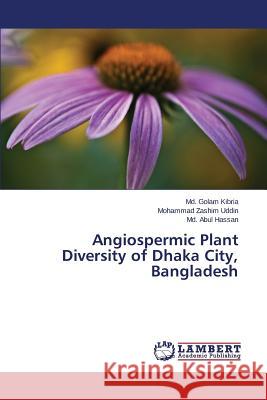Angiospermic Plant Diversity of Dhaka City, Bangladesh » książka
Angiospermic Plant Diversity of Dhaka City, Bangladesh
ISBN-13: 9783847337478 / Angielski / Miękka / 2014 / 156 str.
Dhaka city, the capital of Bangladesh has been surveyed floristically with a view to assess and document existing plant diversity. The author identified a total of 405 species during his one year research period. They have been assigned to 300 genera and 97 families. The families have been arranged according to Cronquist's system of classification. Among them, Magnoliopsida (Dicots) is represented by 74 families, 232 genera and 323 species, while Liliopsida (Monocots) is represented by 23 families, 68 genera and 82 species. Habit analysis showed that trees represented by 152, herbs by 150, shrubs by 86, climbers by 26 and epiphytes by 9 species. Leafing phenology of plants showed that the percentage of evergreen plant species was 91.36% whereas, that of deciduous plant species was only 8.64%. Out of total 405 species recorded 111 are exotic species. A good number of threats to plant diversity have been recorded and some measures for conservation have been suggested. From the present preliminary survey it may be concluded that the study area is still floristically rich with many exotic species. To make complete inventory of the area, further long term survey is necessary.
Dhaka city, the capital of Bangladesh has been surveyed floristically with a view to assess and document existing plant diversity. The author identified a total of 405 species during his one year research period. They have been assigned to 300 genera and 97 families. The families have been arranged according to Cronquists system of classification. Among them, Magnoliopsida (Dicots) is represented by 74 families, 232 genera and 323 species, while Liliopsida (Monocots) is represented by 23 families, 68 genera and 82 species. Habit analysis showed that trees represented by 152, herbs by 150, shrubs by 86, climbers by 26 and epiphytes by 9 species. Leafing phenology of plants showed that the percentage of evergreen plant species was 91.36% whereas, that of deciduous plant species was only 8.64%. Out of total 405 species recorded 111 are exotic species. A good number of threats to plant diversity have been recorded and some measures for conservation have been suggested. From the present preliminary survey it may be concluded that the study area is still floristically rich with many exotic species. To make complete inventory of the area, further long term survey is necessary.











